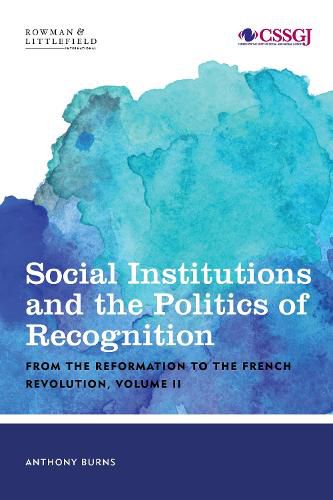Readings Newsletter
Become a Readings Member to make your shopping experience even easier.
Sign in or sign up for free!
You’re not far away from qualifying for FREE standard shipping within Australia
You’ve qualified for FREE standard shipping within Australia
The cart is loading…






This second volume continues the story told in the first by focusing on the writings of a selection of seminal thinkers in the seventeenth and eighteenth centuries, in England, the German speaking world and in France, ending with the debate around the French Revolution of 1789. Tony Burns discusses the work of Thomas Hobbes, John Selden, Sir Matthew Hale, John Locke, Samuel Clarke, Johannes Althusius, Samuel Pufendorf, Gottfried Wilhelm Leibniz, Jean Barbeyrac, the anonymous author of Militaire philosophe, Claude Buffier, l'abbe de Saint-Pierre, Jean-Jacques Burlamaqui, Montesquieu, Jean-Jacques Rousseau, l'abbe de Sieyes, Jeremy Bentham, Immanuel Kant, Mary Wollstonecraft and Claude-Henri de Saint-Simon. The author concludes with an analysis of the concept of administration in the writings of Saint-Simon, as a point of transition to the discussion of the themes of bureaucracy, technocracy and managerialism in the third volume.
$9.00 standard shipping within Australia
FREE standard shipping within Australia for orders over $100.00
Express & International shipping calculated at checkout
This second volume continues the story told in the first by focusing on the writings of a selection of seminal thinkers in the seventeenth and eighteenth centuries, in England, the German speaking world and in France, ending with the debate around the French Revolution of 1789. Tony Burns discusses the work of Thomas Hobbes, John Selden, Sir Matthew Hale, John Locke, Samuel Clarke, Johannes Althusius, Samuel Pufendorf, Gottfried Wilhelm Leibniz, Jean Barbeyrac, the anonymous author of Militaire philosophe, Claude Buffier, l'abbe de Saint-Pierre, Jean-Jacques Burlamaqui, Montesquieu, Jean-Jacques Rousseau, l'abbe de Sieyes, Jeremy Bentham, Immanuel Kant, Mary Wollstonecraft and Claude-Henri de Saint-Simon. The author concludes with an analysis of the concept of administration in the writings of Saint-Simon, as a point of transition to the discussion of the themes of bureaucracy, technocracy and managerialism in the third volume.